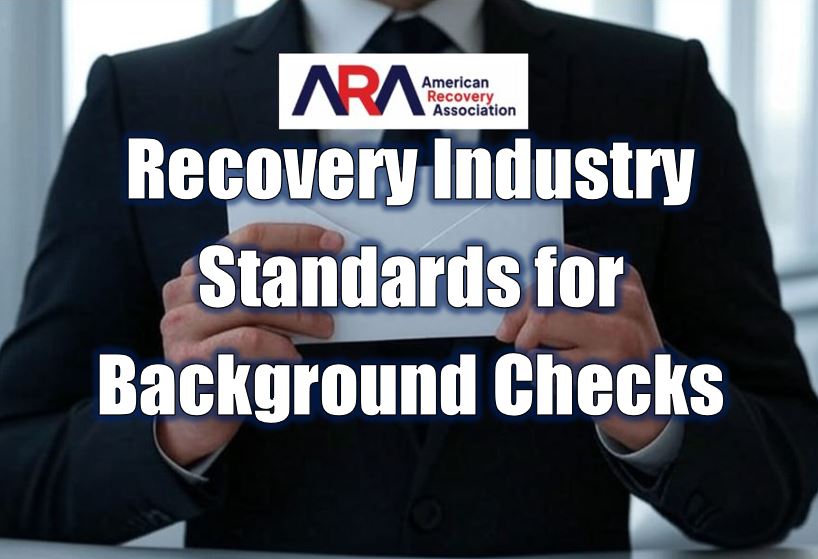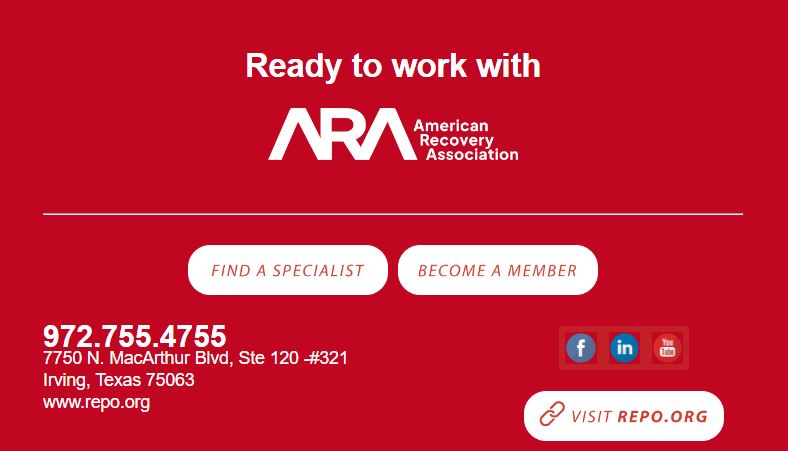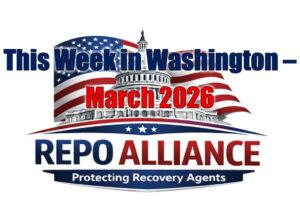Introduction
The recovery industry has evolved. Gone are the days when repossession could be performed by an untrained individual with minimal oversight. The notion that a lienholder could simply call a towing company and ask, “Can they tow a vehicle? Do they have a Slim Jim?” is no longer practical—or acceptable.
Today, financial institutions, forwarding companies, recovery agencies, and retail clients face a wide array of risks, many of which were not as prominent in the past. The sheer volume of repossessions occurring today only compounds those risks.
Unfortunately, many of these risks emerge long before a vehicle is recovered and persist long after the vehicle is sold.
Risks to Be Mitigated
The modern recovery process exposes stakeholders to various potential liabilities, including but not limited to:
- Theft or misuse of personal information
- Breach of peace incidents
- Complications during civil standby situations
- Damage to personal property
- Physical injury to consumers or employees
- Legal costs and consequences
- Reputational harm to financial institutions and recovery professionals
Because recovery agents are often perceived as acting on behalf of financial institutions, the quality and integrity of their conduct reflects directly on those institutions. As such, proactive risk mitigation is essential.
–
Consumer Risk
Repossession is often a consequence of life-altering events: medical emergencies, job loss, divorce, or the death of a loved one. These moments are already fraught with hardship. Adding further emotional or financial distress through careless or aggressive behavior by recovery personnel is both avoidable and unacceptable.
Raising the Bar: A Professional Standard of Care
Professionals handle difficult tasks with competence, care, and integrity. In other fields—medicine, law enforcement, aviation—rigorous background checks and standardized vetting practices are essential. The recovery industry should be held to no lesser standard.
Financial institutions and recovery agencies must share a commitment to selecting only qualified, professional service providers who understand the responsibility entrusted to them. This standard of care should be the foundation of every professional relationship in the industry.
Vetting Responsibilities
–
1. Financial Institutions’ Duty to Vet Service Providers
When selecting a recovery agency, financial institutions should thoroughly assess:
- Licensing (where applicable)
- Insurance coverage, including:
- Commercial General Liability
- Wrongful Repossession
- Automobile Liability
- On-Hook/Cargo
- Garage keepers
- Employee Dishonesty
- Workers’ Compensation
- Experience in the industry
- Creditworthiness, as a healthy financial profile often correlates with stability and compliance
- Compliance history and safety record
- Insurance carrier, preferably one that specializes in the recovery industry
- Ownership review to avoid potential conflicts of interest
- Facility inspection for storage and asset protection
- Internal training programs and operational controls
Because recovery agents are often seen as extensions of the financial institution, thorough vetting is essential to maintain reputational and operational integrity.
–
2. Recovery Professionals’ Duty to Vet Clients
Agencies must also assess the institutions they choose to serve. Key considerations:
- Does the client have a longstanding, reputable presence in asset recovery?
- Do their policies reduce the risk of wrongful repossession claims?
- Does their Service Level Agreement (SLA) reflect shared accountability, including mutual indemnification?
- Are their procedures designed to protect all parties—including consumers?
- Do they request and review your internal policies, showing a commitment to aligned standards?
–
3. Recovery Agencies’ Duty to Vet Employees
Recovery agencies must apply thorough vetting to all personnel—field agents, office staff, property clerks, and security. A background check is not a single event; it is an ongoing process.
Interview and Screening
- Does the candidate engage respectfully and professionally?
- Are they open about their work history and limitations?
- Would you trust them to represent your agency to your most important client—or your most upset consumer?
Avoid scripted or leading questions. Instead, allow candidates to share their story and demonstrate how they communicate, respond under pressure, and reflect on past decisions.
Employment History
- Tenure in prior roles reflects reliability and decision-making skills
- Type of work: Look for relevant experience (e.g., handling sensitive data, navigating conflict)
- Reasons for leaving prior positions—layoffs vs. terminations
- Ability to work under stress, and whether they’ve demonstrated de-escalation skills
Motor Vehicle Records (MVR)
Since driving is a core part of repossession, MVR checks are critical. Look for patterns of unsafe behavior and consider working with your insurer to evaluate risk.
Criminal Background Checks
- Conduct nationwide checks using a reputable provider
- Evaluate events based on:
- Time elapsed
- Frequency
- Severity
- Relevance to the job role
Always ensure compliance with state laws and review your procedures with legal counsel or an HR expert.
Drug Screening
- Conduct pre-employment drug tests
- Maintain post-incident and reasonable suspicion protocols
- Train supervisors in reasonable suspicion evaluation and documentation
–
Ongoing Monitoring: Background Checks as a Continuous Process
Human behavior evolves. An employee with a clean history at hiring may develop risks over time. Employers should routinely:
- Review motor vehicle records
- Conduct incident-driven or random drug testing
- Stay alert to red flags and respond appropriately
Ongoing vigilance helps prevent incidents before they occur.
–
Smart Decision-Making
When you disqualify a candidate based on credible concerns, you’re not just protecting your business—you’re protecting:
- Your clients
- The consumer
- Other employees
- The candidate themselves
A person with a history of poor decisions may be better served by being removed from a high-risk role before something goes wrong. Prevention is always better than damage control.
Standards of Approval
Financial institutions and service providers must collaborate to align their standards for background checks. Mutual understanding and transparency help build trust and reduce risk.
Implementation
No matter where your organization is today, you can always improve. Begin by identifying the next logical step to strengthen your vetting processes. Consult legal counsel and HR professionals as needed. Then, take action.
Conclusion
The most valuable resource in the recovery industry is not equipment or property—it’s people. Your employees and partners shape your risk profile, your brand, and your success.
Background checks are essential tools for understanding and managing those risks. No process can prevent every bad decision, but a track record of good decisions greatly improves your odds.
Financial institutions and recovery professionals alike must commit to high standards, rigorous vetting, and continual improvement—for the good of the industry and the people we serve.
From,
The American Recovery Association
 About the American Recovery Association (ARA)
About the American Recovery Association (ARA)
The American Recovery Association is the world’s largest association dedicated to the advancement and professional development of the recovery and remarketing industry. ARA provides compliance support, education, and advocacy for hundreds of recovery professionals nationwide. ARA is the founder and host of the annual three-day North American Repossessors Summit (NARS) — the largest repossession conference in the industry. For more information, go to repo.org or call (972) 755-4755.












More Stories
Repo Alliance – This Week in Washington – March 2026
Royal Key Supply Announces Kevin Zwahlen as Account Executive – Repossession Sector
CALR Meets with State Repossession Regulators
Powering Smarter Recoveries, Vendor Safety and Faster Workflows
Take the Survey: Tell RDN What Recovery Pros Need Most
One Year Later: How Real-Time Communication Is Keeping Recovery Agents Safer